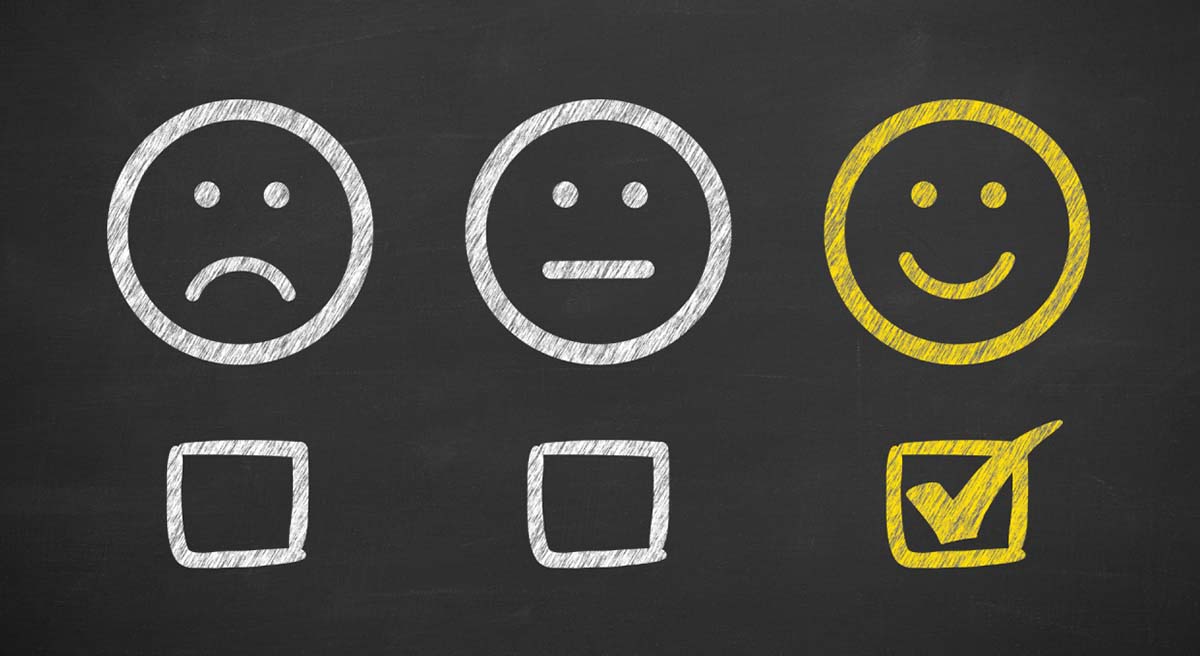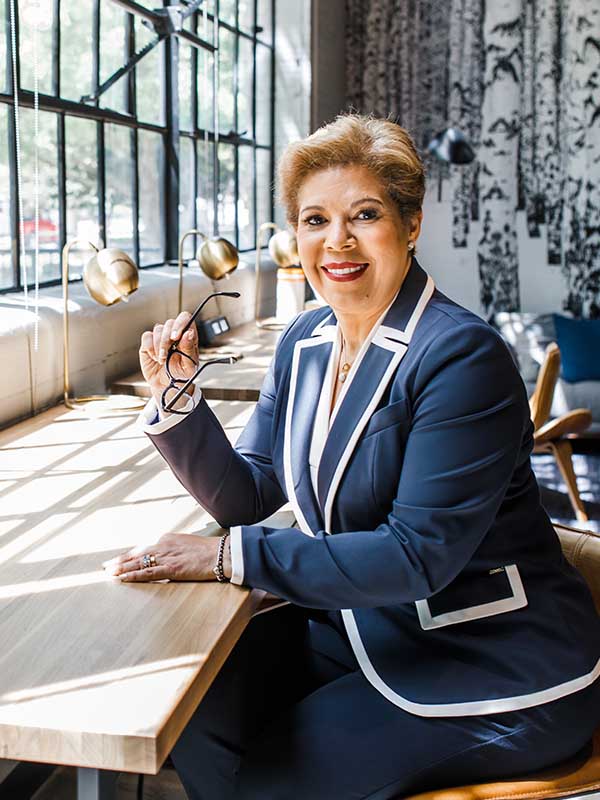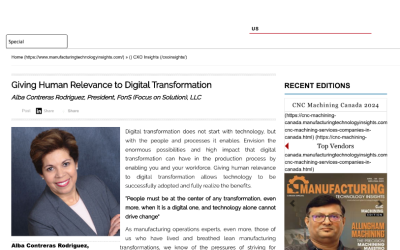A couple of months ago, I had a crisis when my business laptop died on me. I decided it was time to get a new one as my company depends on it. Of course, the first thought is to go online; however, when I looked at all the options available, I needed to count on an expert who could help me navigate and make the best decision. I’ve always bought most of those kinds of purchases at Best Buy, so I rushed there.
Once you get to their brick-and-mortar store, the choices may be as overwhelming as online; however, when I was ready to ask for help, I found it. The associate asked me about my pain point #1, my needs and concerns, to start identifying potential solutions. I did not feel pressured, the gentleman did not push me to decide, and he did not necessarily recommend the most expensive equipment. I also wanted a monitor, and I walked towards the one that looked fancy and pricey, again the associate asked more questions and said that since I was not a video gamer, there were other versions I could get, pain point #2, checked.
Lastly, pain #3, my biggest fear, how was I going to recuperate all my content from the laptop that crashed when my last full back-up was a month old. By the way, please do not use this practice, and have everything in the cloud and an external hard drive – I should have followed what I preach as a coach and consultant.
To address my concern, the associate suggested I purchase their Geek Squad technical support package, and they would take care of everything.
At checkout, I gave my very positive feedback to the associate and asked him about the fear of being crushed by Amazon. His response blew me away, he did not bad mouth them and said how Best Buy is doing the best they can to delight customers, and that there is space for both companies to succeed.
The associate walked me to the Geek Squad counter and introduced me to their agent, told me that I was in great hands and to get back to him if there was anything else he could help me. The Geek Squad (I’ve renamed them Angels Squad) did recover all my data and completely configured my brand-new laptop; I take worry-free any day. A few weeks later, while having a software issue created by another online organization, the Geek Squad agent virtually worked on my laptop for almost 4 hours. She would have me online the minimum amount of time and would call me on my cell phone any time she needed me so that I would not have to be tied up in front of my computer while she did her magic. That kind of attention to detail and service is priceless.
After all these fantastic experiences as a Best Buy customer, I did some research as to how they have been able to survive their online competition. Moreover, what I found is in full alignment with what I believe in, coach and consult about – people need to be at the center of any transformation, especially if it is a digital transformation.
The reason for their success is that Best Buy used a combination of corporate strategy, emotional intelligence, and foundational overhauling to save itself from ruin. In 2012, the CEO had resigned during the perfect storm when the stock price hit $12.00, Hubert Joly took over and implemented the following actions:
- Focus on humans: Joly used what I learned from lean manufacturing – go to the floor, talk to the people, ask questions, listen, understand, AND FIX the issues. He realized there are things robots cannot do very well – customer service, and the company invested in training to improve customer service and employee morale. Joly avoided layoffs as much as possible; employee turnover fell from 50 to 30% in the last few years; 78% of employees would recommend working at Best Buy to a friend, and Joly gained a 92% employee approval rate.
- Turn a weakness into strength: Joly knew the practice of people visiting his showroom and leave to buy online at a competitor’s site. He experimented with new strategies such as price matching; rented square footage to the large electronics companies; set mini-warehouses for online customers to pick up from the store.
- Don’t sell. Build relationships: Joly leveraged their ability to connect with customers face-to-face and have had Geek Squad since 1994. He decided to expand and improve their level of service by offering a home advisor program to help people decide if and what to buy. Those agents are incentivized to build relationships, not to push sales; they have an annual salary.
- Revamp the infrastructure and processes: software, warehouse systems, shipping, online sales, and procedures overhauled. One example of attention to data, the company noticed that an unusually high number of flat-screen TVs were being dropped in its warehouses. It revamped the handling process, reducing the number of times TVs were picked up by a clamp lift and adding new carts to prevent TV boxes from falling over. The changes resulted in less broken inventory. The turnaround took several years, and it involved redesigning nearly every element of the business.
- Stay humble: Joly is clear that the disruption will continue and says, “Once you’ve had a near-death experience, arrogance, if you had it in your bones, has disappeared forever.” This month, Columbia Business School awarded Hubert Joly with the 2019 Deming Cup for Operational Excellence. Talking about being humble, Joly gave recognition to the 125,000 individuals doing wonders at Best Buy every day, enriching lives with the help of technology. He also thanked the person who recruited him to the job and Marshall Goldsmith for being his executive coach throughout the years.
It was palpable the impact those actions had on my customer experience. The Best Buy associate was happy to work there; I was supported to purchase a high-cost item; I did not feel pushed, he was interested in my business and the pain points that needed immediate attention.
The top and bottom-line results are also tangible. Best Buy has 15% of the U.S. consumer electronics market, their profit margins and revenue are stable, and they have cut their debt in half. Its overall number of stores has held steady for a decade. Its share price has jumped around 270 percent in the last five years; this morning, their stock price is $66.21. It will be fascinating to continue following Best Buy’s trajectory now that the company handed over the CEO job to CFO Corie Barry, who was a key player behind Best Buy’s strategic turnaround.
Back to the core of this story, the impact of emotional intelligence. Peter Salovey and John D. Mayer originated the term ‘Emotional Intelligence’ in 1990. The first book I read about emotional intelligence (EQ) back in 1996 was Emotional Intelligence – Why it can matter more than IQ, by American psychologist Daniel Goleman. He defined emotional intelligence as “The capacity for recognizing our feelings and those of others, for motivating ourselves, for managing emotions well in ourselves and our relationships.” It was interesting that book cover says at the top – The Groundbreaking Book That Redefines What It Means To Be Smart.
Goleman says, “our genetic heritage endows each of us with a series of emotional setpoints that determines our temperament. But, the brain circuitry involved is extraordinarily malleable; temperament is not destiny.” Many of the skills leaders pursue when they hire me as their coach have to do with Emotional Intelligence, particularly when leaders are facing or about to experience a transition or a significant transformation.
According to the World Economic Forum’s Future of Jobs Report, emotional intelligence will be one of the top ten job skills in 2020 (yes, next year). A Fast Company article by Harvey Deutschendorf (2016), mentioned the seven top reasons why highly emotionally intelligent candidates are so valuable – they can:
- handle pressure healthily
- understand and cooperate with others
- be good listeners
- be more open to feedback
- be more empathetic
- set an example for others to follow
- make more thoughtful and thorough decisions
Hubert Joly had an adaptive mentality with the new reality. He did not quit, did not fight, did not have excuses, but defined how to coexist with the big online competitor. Joly took advantage of what robots cannot handle, personalized experience, and service to customers and employees.
When a digital transformation gets done with a non-traditional approach, leaders understand the importance of ensuring the readiness of the humans – this is the work I help facilitate and enable, giving human relevance to digital transformation ©.
The way to obtain success and results in a digital transformation means to know that it is about people, enabled by technology. It requires leaders to have the patience and the willingness to take risks, experiment, learn, and trust. It needs leaders to be comfortable with being uncomfortable with embracing being preventive, predictive, and not reactive.
If you found this blog/article helpful, please add a comment below and share it.
Sources: Inc (Justin Bariso); The Week (Jeff Spross); Fast Company (Harvey Deutschendorf); The New York Times (Kevin Roose)




